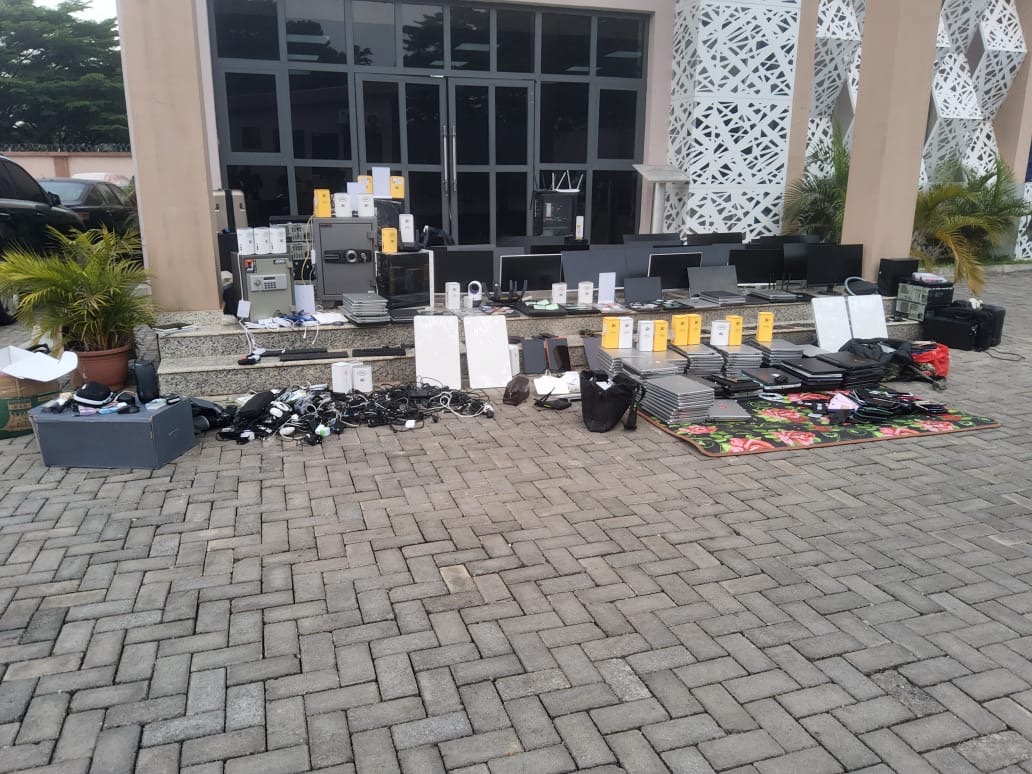The Power Play Behind Operation Red Card
The term “Operation Red Card” now echoes across global cybersecurity communities as a resounding win in the war on digital crime. Spearheaded by INTERPOL with the strategic tech intelligence of Group-IB, this multinational operation turned the tide against sprawling cybercriminal networks exploiting individuals and businesses in Africa. The mission wasn’t just a law enforcement triumph—it was a technological masterstroke.
Origins of the Red Card Initiative
Launched between November 2024 and February 2025, the Red Card Initiative was born out of necessity. Digital crime was surging in African nations, with banking fraud, investment scams, and malware-ridden phishing schemes paralyzing both personal and institutional targets. INTERPOL, recognizing the urgent need for cross-border cooperation, rallied global forces.
Group-IB’s inclusion added the edge—infusing the operation with advanced cyber forensics, AI-driven analytics, and cutting-edge threat intelligence.
Group-IB’s Game-Changing Cyber Intelligence
Group-IB’s role wasn’t merely supportive; it was foundational. The company’s Digital Crime Resistance Centers (DCRC) provided actionable data, intelligence on attack infrastructures, and digital footprints that led directly to criminals’ doors. By analyzing attack vectors, communications trails, and digital assets, they helped local authorities conduct precision arrests, not wild goose chases.
What’s more, their Unified Risk Platform allowed multi-source threat correlation, giving INTERPOL real-time visibility into fraud operations that previously hid behind encryption and obfuscation techniques.
Massive Crackdowns Across Africa
Operation Red Card wasn’t confined to one hotspot. Instead, it spanned seven nations—each contributing to the takedown of deeply entrenched criminal syndicates operating under the veil of anonymity.
Key Arrests and Criminal Networks Dismantled
Over 306 cybercriminals were arrested, many of whom ran international fraud rings using tech for deception and laundering. More than 1,800 devices were seized, including laptops, routers, SIM boxes, and smartphones configured for spoofing, phishing, and data exfiltration.
In Rwanda, 45 suspects were arrested in a large-scale social engineering ring that netted over $305,000 in 2024 alone, using fake lottery winnings and impersonation scams to steal sensitive data.
Country-by-Country Takedowns: Rwanda, Nigeria, Zambia, and More
-
Nigeria saw 130 arrests, 113 of whom were foreign nationals. These suspects ran fake investment platforms and illegal e-casinos. Law enforcement uncovered 39 plots of land, 26 vehicles, and 685 digital devices, exposing vast illicit wealth accumulation.
-
South Africa cracked a SIM box syndicate manipulating telecom infrastructures to run phishing campaigns. Authorities recovered 1,000+ SIM cards and 53 computer towers.
-
Zambia’s team disabled a malware-based operation that hijacked smartphones and banking apps, using infected links to steal financial access and spread malicious software through messaging platforms.
How Cybercriminals Operated: Tools, Tricks, and Tactics
To understand the scale of this victory, one must dissect the criminal tactics—each more cunning than the last.
The Rise of Social Engineering and SIM Box Scams
Cybercriminals increasingly leverage social engineering—a method exploiting human psychology rather than software flaws. Fraudsters impersonated telecom staff, promised fake job offers or lotteries, and requested “emergency” transfers for fabricated family crises.
Meanwhile, SIM box fraud allowed criminals to route international calls as local ones, obscuring their origin and facilitating thousands of scam calls daily. It also helped them launch massive smishing attacks (SMS phishing), deceiving users into divulging sensitive information.
Weaponizing Messaging Apps and Phishing Kits
Popular platforms like WhatsApp, Telegram, and even Facebook Messenger became hotbeds for cyber deception. Hackers embedded malicious links in messages that—once clicked—unleashed spyware and trojans capable of accessing contacts, banking data, and more.
Criminals used phishing kits purchased from the dark web, often pre-loaded with mobile-specific scripts to evade two-factor authentication and security protocols. Once inside, they’d drain accounts and multiply their reach by automatically messaging new victims.
Group-IB’s DCRC: A Fortress for Digital Defense
Group-IB’s DCRC for the Middle East, Africa, and Turkey stood as the operation’s analytical nucleus. It wasn’t just about tracking data—it was about understanding the behavioral DNA of cybercrime networks.
Role of Advanced Threat Intelligence
Using proprietary Threat Intelligence & Attribution tools, the DCRC mapped the entire cybercriminal ecosystem—identifying threat actors, their digital infrastructure, and associated risks.
This deep dive enabled enforcement agencies to link seemingly isolated scams into a networked threat landscape, accelerating arrests and shutting down major crime nodes.
Tech, Teams, and Tactics Behind the Scenes
Group-IB’s experts combined AI-driven forensics, multi-language monitoring, and real-time data visualization to transform raw intelligence into court-admissible evidence. Working alongside INTERPOL and local forces, they trained teams, secured servers, and ensured evidence integrity.
Their proactive approach even uncovered signs of human trafficking, suggesting that some cybercriminals were coerced into service—adding a humanitarian layer to this digital justice operation.

Group-IB’s DCRC: A Fortress for Digital Defense
Why This Matters: Lessons, Impact, and the Road Ahead
Operation Red Card isn’t just a case study in law enforcement—it’s a blueprint for cyber defense cooperation in a digital-first world.
Future of Cyber Policing and International Collaboration
The success of this operation shows that global cybersecurity requires real-time collaboration, open threat intelligence sharing, and tech-industry participation. With Group-IB acting as a tech ally to INTERPOL, future operations could dismantle threats even before they surface.
Expect a rise in predictive cyber policing, where AI anticipates fraud patterns, and blockchain ensures evidence immutability.
How Businesses and Individuals Can Stay Protected
Now more than ever, cyber hygiene is non-negotiable. Users and companies must adopt:
-
Zero-trust architecture
-
Employee phishing awareness training
-
Regular software patching
-
Multi-factor authentication
-
Real-time fraud detection systems
Platforms like Group-IB’s Unified Risk Platform can equip businesses with the tools to proactively identify and neutralize threats.
FAQs
What is Operation Red Card?
It’s a joint initiative by INTERPOL and Group-IB aimed at dismantling cybercriminal operations across Africa, launched in late 2024.
How many cybercriminals were arrested?
306 individuals were apprehended across multiple countries, including Nigeria, Rwanda, and South Africa.
What types of scams were most common?
The operation revealed social engineering, mobile banking fraud, and phishing via messaging apps as primary tactics.
How did Group-IB contribute?
They provided advanced threat intelligence, cyber forensics, and real-time data to guide investigations and arrests.
What technologies were seized?
Over 1,800 devices including smartphones, SIM cards, laptops, and SIM box systems were confiscated.
How can I protect myself from such scams?
Use multi-factor authentication, avoid suspicious links, and verify unexpected messages even if they appear to come from known contacts.
Operation Red Card marks a pivotal moment in the evolution of cybercrime prevention. With Group-IB’s digital vigilance and INTERPOL’s coordinated force, the world has witnessed how technology can be weaponized not just for harm—but for justice. As we forge into a more connected future, the blueprint laid here may well define the next decade of cyber resilience.
For more information, visit www.group-ib.com

